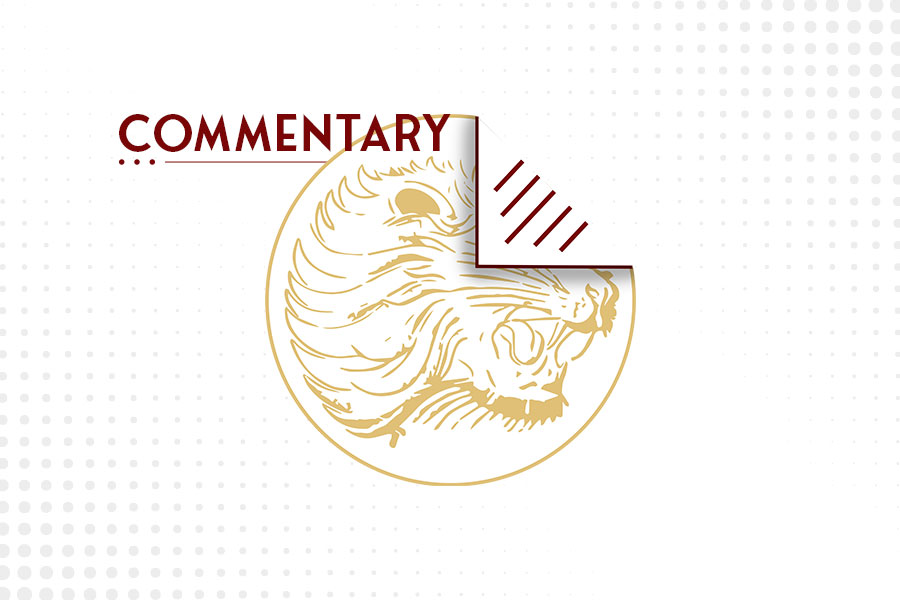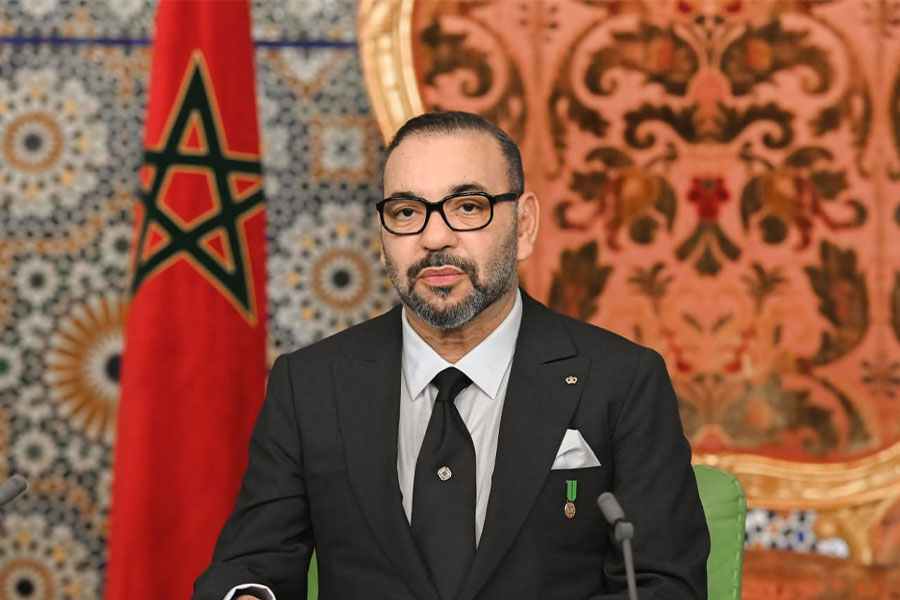
Verbatim | Nov 12,2022
Aug 21 , 2021
By Senay Lemma , Solomon Girma
The deterioration of service delivery, increasing numbers of customer complaints, and an explosion of corruption and fraud are partly attributable to poor human resources management. It is not too late to change it, write Senay Lemma, regional human capital manager for Eastern Africa at Elsewedy Electric, and Solomon Girma, a freelance HR consultant.
Despite the multitude of challenges facing Ethiopia, the government has been laying the basis for sustainable development. There have been an endorsement of new public policies and strategies to enhance national investment, improve employability, boost entrepreneurial skills and create jobs for millions. The Green Legacy and the strides taken to endure the pressures inflicted by the COVID-19 pandemic are also notable accomplishments. Though crucial to the prosperity of the nation, these reforms and additions will be impacted by the current shortage of skilled and well-prepared human power. It is a serious challenge that needs immediate intervention.
In modern times, organisations are ceaselessly striving to create the future of human resources management and the new world of work. HR today is entirely different from what was years before. The new world of work is greatly interconnected and globalised, making it impossible for an organisation to isolate itself. Contrary to the traditional world of work, which is formalised and myopic; the new ones are flexible and farseeing; and depend more on technology and other intangible resources for operational efficiency. It brings people back to the pool at the centre, it is chaotic and fast-moving, and it is exceedingly practical to resolve core socio-political and economic issues.
The future of HR is in full force in many leading economies recreating well-cultured and ethical people capable of delivering great service quality to customers through profitable networks. The world is heading towards living the future and the name of the game is agility, which creates the reality of a focused strategy in a new world of work. This enables HR to stay relevant, mission-driven, and business-oriented. The world which is replete with complex patterns of change is not waiting unless we in advance take a precaution to readjust.
Unfortunately, most of the reform attempts in Ethiopia are incomprehensive for not earnestly considering the human capital as a vital means to meaningful transformation. In many cases, there is even nearly no room for setting up a full-fledged Human Resource Unit to properly address issues pertinent to HR matters. The strategic role of HR in the country has been downplayed for too long and has remained a bottleneck to the entire development effort.
The unfolding deterioration of service delivery, increasing numbers of customer complaints, and an ever terrible explosion of corruption, fraud, embezzlement, and red tape in organisations can be attributed partially to poor HR management. A huge number of organisations and institutions in Ethiopia are stuck somewhere in the unknown, overwhelmed by outdated HR systems and practices. Processes are commonplace and HR affairs are moving in a business as usual manner. As a consequence of the failure of the institutions to adapt in this area, there are few sound strategies that are aligned with businesses – workforce planning mechanism is not accepted, recruitment is not based on merit, and appointments and promotions are politically motivated or ethnically based.
There is of course hope for a gradual change of direction in the appointment of civil servants as the implementation of the 10-year development roadmap gradually takes hold. But there will not be much significant change as long as performance is rarely measured, reward and recognition programmes are seldom launched, and often times are unfair and inappropriate. The trend exhibits an abundance of poor organisational culture across institutions. Succession planning has no place in almost all organisations and for this reason, talent migration and poaching have become a common practice, especially in the financial sector.
Despite all of these challenges, it is not too late to improve matters. All stakeholders are to take the responsibility of remaking the traditional HR practices to make a successful journey towards national growth. The government should demonstrate a strong commitment to this and craft a sound strategy for directing the nation’s human capital. Human capital is the source of national wealth. The government should therefore launch a human capital strategy.
The civil service is known to be the lifeblood of any government because the implementation of government policies and strategies is highly dependent on the courage and passion of civil servants. Therefore, this part of the government should be strengthened to continue functioning as an independent and impartial body that is entrusted to take the responsibility of facilitating development through human capital. It is necessary to learn from the experiences of other nations such as Ghana, Tanzania, South Africa and China to catch up with planning for and implementing the endeavour.
The damage thus far was due to our inability to develop proactive leaders capable of dragging out the public service from the quagmire. Leaders at different levels should be role models to followers. We are badly in need of leaders who are prepared to break apart the chain of corruption that has lately come to take advantage of the chain of command. Constructive leaders are urgently needed to activate and convey transformation to our public organisations, institutions, and service providers that are currently dormant and in a state of limbo.
For instance, the recent 10-years development plan that is encompassing real structural transformation by considering different reforms at the macroeconomic policy level has failed to look at the human capital aspect seriously. The same holds true with the Growth & Transformation Plans (GTPs) and the Home Grown Economic Reform. A turnaround of such a practice is mandatory and the right practise should be applied by both public enterprises and government organisations. Any plan or strategy by the government at the macro levels should consider the human capital aspect seriously.
The appointment of civil servants needs to be based on an open and competitive job call, and selection should be free from political bias and party affiliation. Unless reform is made to the conventional and irregular structures and processes, organisations and institutions will continue entertaining corruption and red tape that are counteracting a speedy delivery of services to the public. Now more than ever, the country needs a technically and technologically skilled, knowledgeable, agile, ethical, and ready workforce that is capable of executing the national economic, political, and social development policies.
Thus, it should be clear that leadership development is key to unlock the potentials of human resources. It is essential to groom potential leaders in any manner possible. For instance, the recently inaugurated African Leadership Excellence Academy in Sululta, just outside Addis Abeba, is instrumental to create proactive leaders in the future.
Top leaders in most government organisations need to become visionaries. Others in the financial and other sectors can be made subject to follow the same development pattern. Primarily, organisations must make sure whether there is an HR strategy at their disposal and if that is in alignment with their strategic plan. Otherwise, the HR unit in place is irrelevant and is vulnerable to malfunction. Once the organisation has such a unit, it has to develop a strategy and programs enabling effective delivery of services.
Organisations in Ethiopia need to work hard to build an all-inclusive culture that guides individual and organisational behaviour. Like strategy, organisation culture matters a lot. If employees are not living the values of their firms, they are not ready to deliver the strategy or keep what is promised to customers and shareholders.
“Culture eats strategy for breakfast,” as David Ulrich, author on business management, succinctly put.
This can start by ending the practice of “war” for talent. Companies should implement succession plans and introduce programmes such as Graduate-In-Training. The organisations would therefore be able to uninterruptedly stay in action even when the talent pool is dry or narrow.
Organisations should also focus on the future of work and make use of technology. They should focus on developing the skills and capabilities of staff to increase the level of their productivity. Up-skilling and re-skilling are highly valuable both for the organisation and the staff. A critical part of this is addressing gender gaps in the workplace, particularly in key managerial and leadership positions as well as in the board of directorship.
Throughout all of this, what should not be forgotten is how essential it is to create leaders that are proactive and have the right skill and mindset. Moreover, they inspire employees and develop other leaders who can live the future now.
PUBLISHED ON
Aug 21,2021 [ VOL
22 , NO
1112]

Verbatim | Nov 12,2022

Delicate Number | Jul 13,2024

Commentaries | Apr 15,2023

Advertorials | Jun 03,2025

Agenda | Jul 28,2024

Viewpoints | Oct 30,2022

Commentaries | Aug 25,2024

News Analysis | Nov 11,2023

Fortune News | Oct 15,2022

Fortune News | Feb 08,2020

My Opinion | 131548 Views | Aug 14,2021

My Opinion | 127903 Views | Aug 21,2021

My Opinion | 125879 Views | Sep 10,2021

My Opinion | 123510 Views | Aug 07,2021

Dec 22 , 2024 . By TIZITA SHEWAFERAW
Charged with transforming colossal state-owned enterprises into modern and competitiv...

Aug 18 , 2024 . By AKSAH ITALO
Although predictable Yonas Zerihun's job in the ride-hailing service is not immune to...

Jul 28 , 2024 . By TIZITA SHEWAFERAW
Unhabitual, perhaps too many, Samuel Gebreyohannes, 38, used to occasionally enjoy a couple of beers at breakfast. However, he recently swit...

Jul 13 , 2024 . By AKSAH ITALO
Investors who rely on tractors, trucks, and field vehicles for commuting, transporting commodities, and f...

Jun 28 , 2025
Meseret Damtie, the assertive auditor general, has never been shy about naming names...

Jun 21 , 2025
A well-worn adage says, “Budget is not destiny, but it is direction.” Examining t...

Jun 14 , 2025
Yet again, the Horn of Africa is bracing for trouble. A region already frayed by wars...

Jun 7 , 2025
Few promises shine brighter in Addis Abeba than the pledge of a roof for every family...

Jun 29 , 2025
Addis Abeba's first rains have coincided with a sweeping rise in private school tuition, prompting the city's education...

Jun 29 , 2025 . By BEZAWIT HULUAGER
Central Bank Governor Mamo Mihretu claimed a bold reconfiguration of monetary policy...

Jun 29 , 2025 . By BEZAWIT HULUAGER
The federal government is betting on a sweeping overhaul of the driver licensing regi...

Jun 29 , 2025 . By NAHOM AYELE
Gadaa Bank has listed 1.2 million shares on the Ethiopian Securities Exchange (ESX),...